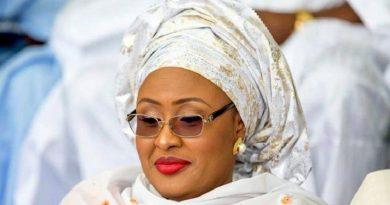Inflation rate in Nigeria will increase in the short term
During its most recent meeting on Tuesday, the CBN/MPC addressed the country’s rising inflation rate and increasing exchange rate pressures by choosing to raise the monetary policy rate (MPR) by a significant +400bps to 22.75%, the highest level seen since 2006. Along with this adjustment, there were also changes made to the asymmetric corridor and cash reserve ratio. The decision to increase interest rates is intended to combat inflationary pressures by limiting the availability of credit and slowing down consumer spending. However, this action is expected to raise borrowing costs for both businesses and consumers, potentially reducing consumption activities in the short term.
The MPC’s recognition of the delicate balance between promoting growth and controlling inflation demonstrates the complexity of the macroeconomic environment, where increasing inflation poses a threat to purchasing power and worsens socio-economic inequalities. The recent tightening of monetary policy is likely to impact Nigeria’s fixed income market. With the rise in the MPR and adjustments to the CRR, investors may reconsider their portfolio allocations, favoring higher-yielding assets to counter the effects of rising interest rates. This shift could lead to a surge in demand for government bonds and NTBs, resulting in higher yields and reshaping the yield curve in the fixed income market.
Following the MPC’s decision, the average FGN Bond yield rose by +80bps. Compared to the previous day, the average yield in the mid-curve increased by +54bps. Additionally, the average NTB yield saw a 30bps increase. It is important to note that the real interest rate (MPR – Inflation) currently stands at -7.1%.
The recent adjustments made to the standard deposit facility and cash reserve requirement framework by the CBN, prior to the February MPC meeting, demonstrate the central bank’s commitment to refining its monetary policy tools and enhancing liquidity management. Additionally, regulatory measures implemented to reduce excessive FX exposures and improve transparency in FX transactions are expected to bolster Nigeria’s financial system resilience and uphold macroeconomic stability.
The exchange rate continues to be a key focus and was a prominent topic during the MPC discussions. Despite the temporary suspension of FX interventions in 2023, recent actions such as injecting USD180m into the NAFEM window indicate a renewed dedication to stabilizing the exchange rate and addressing FX repatriation challenges. The clearance of USD2.4bn in FX claims highlights the significance of resolving backlogs and increasing liquidity to boost investor confidence and create a more predictable FX environment.
Nevertheless, uncertainties surrounding the macroeconomic outlook, coupled with concerns about policy consistency and implementation, could dampen investor sentiment in the short term. However, sustained efforts to enhance transparency, clarity, and policy coordination may help rebuild investor trust and attract essential capital inflows.
The CBN’s monetary policy approach, which aims to strike a balance between containing inflation and stimulating growth, remains crucial. As global economic uncertainties persist and domestic structural reforms progress, policymakers must stay vigilant and proactive in addressing emerging risks. Effective collaboration between monetary and fiscal authorities will be vital in guiding the country towards sustainable economic recovery and prosperity.
CBN staff projections suggest that inflation will increase in the short term before eventually decreasing. This aligns with our own projections. Our analysis indicates that headline inflation is expected to reach its highest point in the second quarter and then gradually decline, assuming all other factors remain constant. Additionally, the CBN estimates a GDP growth rate of 3.38% for 2024, while the FGN projection is slightly higher at 3.88%. In comparison, our projection stands at 3.0% year-on-year. SOURCE: Coronation Economic Note by Coronation Merchant Bank




